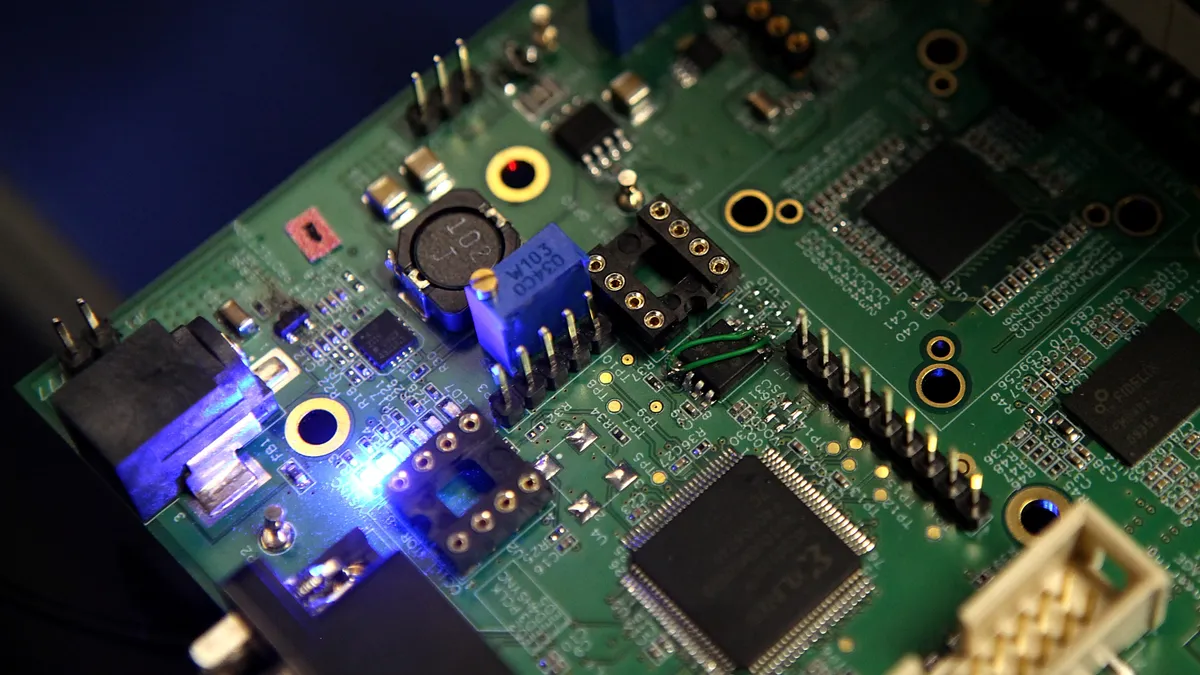Dive Brief:
- Semiconductor manufacturers are facing a glut of computer chips as smartphone and PC demand declines, executives said in second quarter earnings calls.
- Apple supplier Taiwan Semiconductor Manufacturing Company is forecasting that the semiconductor supply chain will take “a few quarters to rebalance to a healthier level,” CEO C.C. Wei said in an earnings call Thursday. Wei said smartphone and PC makers have adjusted their inventory levels, leading to an oversupply of chips.
- Idaho-based manufacturer Micron Technology has also seen “a significant reduction” in short-term demand for semiconductors, with CEO Sanjay Mehrotra noting in June that the company is “taking actions immediately in terms of curtailing our supply growth for fiscal year ‘23.”
Dive Insight:
Semiconductor constraints have rippled through supply chains worldwide, contributing to production slowdowns and billions of dollars in estimated missed revenue over the past two years. Now, the incredible demand that helped contribute to those shortages may finally be easing.
Micron expects PC and smartphone sales to decline 10% YoY after previously predicting growth in both earlier in the year. Cooling demand has begun to impact the growth of semiconductor sales industry-wide: May was the first time in 14 months that sales increased by less than 20% on a year-to-year basis, according to the Semiconductor Industry Association.
Amid flattening demand, Micron forecasts that its inventories will continue to increase next quarter, according to Mehrotra. The company will use the excess chips to help meet demand next year and rethink capital expenditure plans to save on production costs.
“Our goal is to work with our customers to come up with the best approach and figure out how best to position ourselves in terms of the forward-looking views of their purchasing patterns,” said Sumit Sadana, Micron’s chief business officer.
But even with the drop in demand for smartphones and PCs, some manufacturers still expect long-term semiconductor supply to remain constrained. TSMC’s long-term agreements with customers and sustained appetite for chips outside the consumer sector has meant “demand continues to exceed our ability to supply,” Wei said.
TSMC plans to reallocate its excess semiconductors to support its automotive and data center customers. The company is ramping up future production of more advanced technologies to meet demand for high-performance computing, which is seen as a potential growth driver.
“While macroeconomic headwinds bring near-term uncertainties that may persist, we believe the fundamental structural growth trajectory in the long-term semiconductor demand remains firmly in place,” Wei said.














